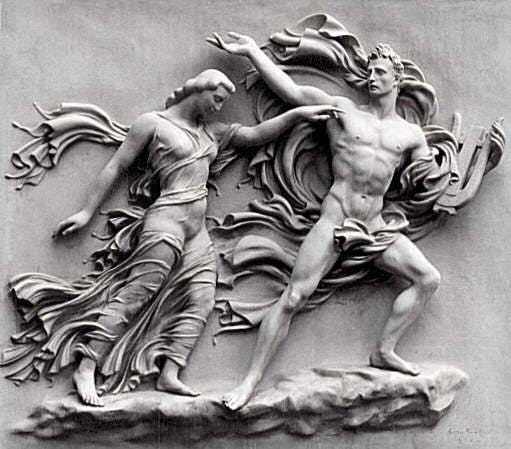The Suppression of German and Greek Cultures
by Guillaume Faye
Guillaume Faye argues that the marginalisation of German and Greek cultures in modern Europe represents a systematic assault on the continent’s historical identity and intellectual heritage.
This is the fifth part of Guillaume Faye’s essay ‘The New Ideological Challenges’, published in 1988. Also read parts one, two, three, and four.
In contemporary Europe, Germany epitomises displacement from heritage, systematic deculturalisation, and betrayal of origins. Germany, divided by both Yalta accomplices, served as a laboratory for amnesia, symbolising the joint attempt by Soviet Russia and the American West to erase European identity. The homeland of Goethe, Mozart, and Hölderlin has become a figure of European cultural martyrdom, the site where the deliberate and programmed destruction of cultural and national identity proved most effective. Consequently, Germany may give rise to the strongest resistance against this identity uprooting — a movement that could potentially become a popular movement, influencing the rest of Europe, even though this movement historically originated from the French and Italian intellectual elites of the ‘New Right’. The threat to Europeans is the loss of cultural identity and attempts to strip them of their origins — especially their ‘Greek’, ‘Homeric’ origins — posing the greatest danger of erasing us from history, committing an ultimate ethnocide with more terrifying efficacy than political-military neutralisation or economic colonisation, which we have also suffered.




